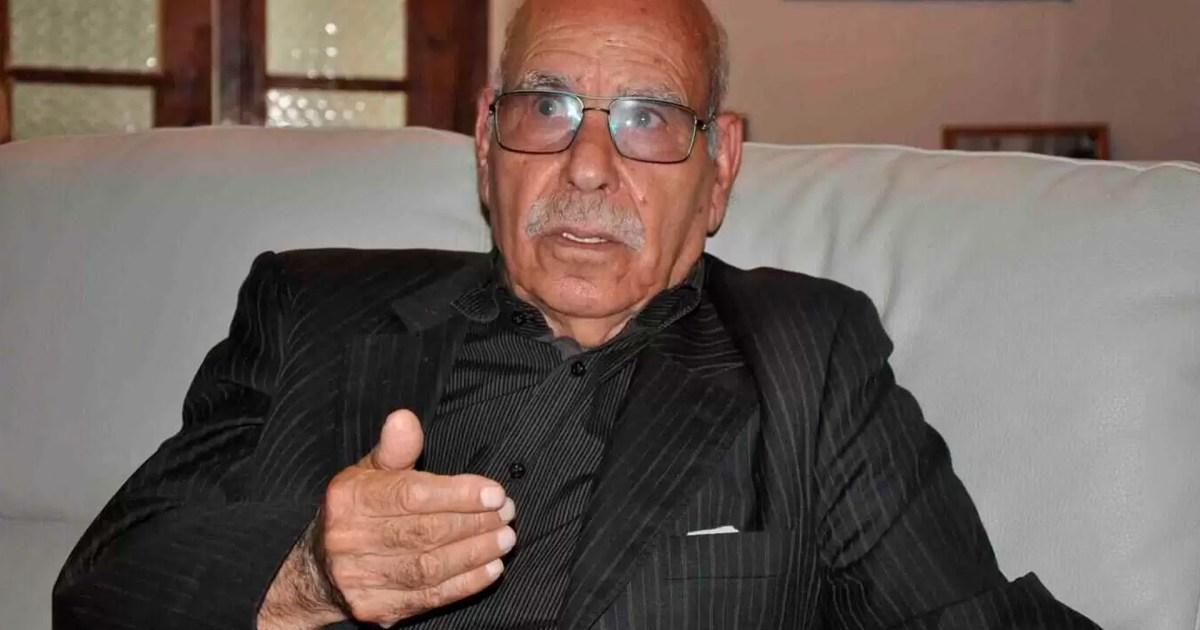"Si Lakhdar Bouregaa" - as the children of his generation call him - or my uncle Lakhdar, according to what he calls the new generation of young people who gathered around him as one of the most prominent leaders of the liberation revolution in Algeria, he left yesterday, Wednesday, after being infected with the "Covid-19" virus at the age of 87 years .
The "man of the two revolutions" who lived a fighter for liberation and a fighter for his homeland and identity, and who went through the experience of arrest, in defense of the humanitarian and patriotic causes in which he believed.
The Algerians are unanimous that "a warm heart like the one carried by Si Lakhdar would not have spent him as snow and cold in the mountains of Medea (80 kilometers west of the capital), as he was its leader in the years of the Algerian revolution."
In the meantime, a march begins from the cemetery of Sidi Yahya, right after the completion of the burial ceremony of the mujahid # Lakhdar_Borqa.
pic.twitter.com/wANrBfNPMY
- Channel # Awraas TV (@AwraasTV) November 5, 2020
Military hat
After Algeria seized its independence from the grip of France, he threw the patch of arms and the military uniform, and wore the hat of a political fighter and mediator for reconciliation and dialogue.
Bouregaa was arrested on the eve of the sixth anniversary of independence, after he was accused of allying with Karim Belkacem and Taher Zubeiri, in what was known as the liquidation of the square for President Houari Boumediene.
After nearly a year of his imprisonment, he was sentenced to 30 years in prison, of which he served 8 years until 1975, and then he was released following a presidential pardon, on the occasion of the tenth anniversary of the so-called revolutionary correction.
The entry of Si Lakhdar Bouregaa to El Harrach prison in the western suburbs of the capital for years in the 1970s was not the last experience. He returned to it after more than 4 decades, but this time in Algeria on charges of "weakening the morale of the army."
My uncle Lakhdar Bouregaa entered El Harrach prison in June of last year, after his name was associated with the peaceful popular movement that the Algerians called for on February 22nd, facing the charge of "demoralizing the army" after he criticized the road map for the actual authority of the country at the time.
Lakhdar Bouregaa was subjected to accusations of treason broadcasted by government and private channels that questioned his militant identity, followed by a popular campaign and counter-organization, which prompted the former to apologize.
Burah, rest, rest ... We will continue the struggle
The man of the two revolutions, Lakhdar Bourega, may God have mercy on him ... # Civilian_Military_state # Down with military rule pic.twitter.com/Q9ZoagRtnB
- Mohamed Elaraby Zitout (@mohamedzitout) November 5, 2020
Resilience
Si Lakhdar's lawyers do not forget his meeting with them during the visit that led them to him while he was in prison, when he addressed them with the voice of the twentieth revolutionary in his eighth decade, with the hoarse that the cries of his participation in the movement left, saying, "I will not get out of this prison without the youth of the peaceful movement."
Bouregaa stood before the judge, addressing him in the historic trial, in October of last year, refusing to answer his questions, saying, "I will not respond because I do not recognize you as an independent judge, and I do not recognize the legitimacy of the court as belonging to an unconstitutional system."
His will
“Balako hates the country,” said Si Lakhdar in Algerian colloquial, a final commandment that he addressed to the younger generation, stressing that they should not hate their country no matter what, raising his right index to confirm that the homeland is the honor and honor of man.
My uncle left Lakhdar Bouregaa, as the youth of the February 22 Movement like to call him, leaving behind a thought, how not?
He is the author of the struggle history that began during the war of liberation, and the history record that the region he led, France suffered the greatest losses during the Algerian revolution.
Bouregaa was an Arab to the core, and he was quick to respond to the contribution in the 1973 war to confront the Israeli aggression.
He was known about the man as the mastermind and the owner of strategic plans that rarely miss a goal.
He was buried in Bouregaa today, Thursday, and the Algerians walked behind his funeral, who heard their wailing under the tears of the capital that rained down to the dirt that he covered in the Sidi Yahya cemetery in the capital.

